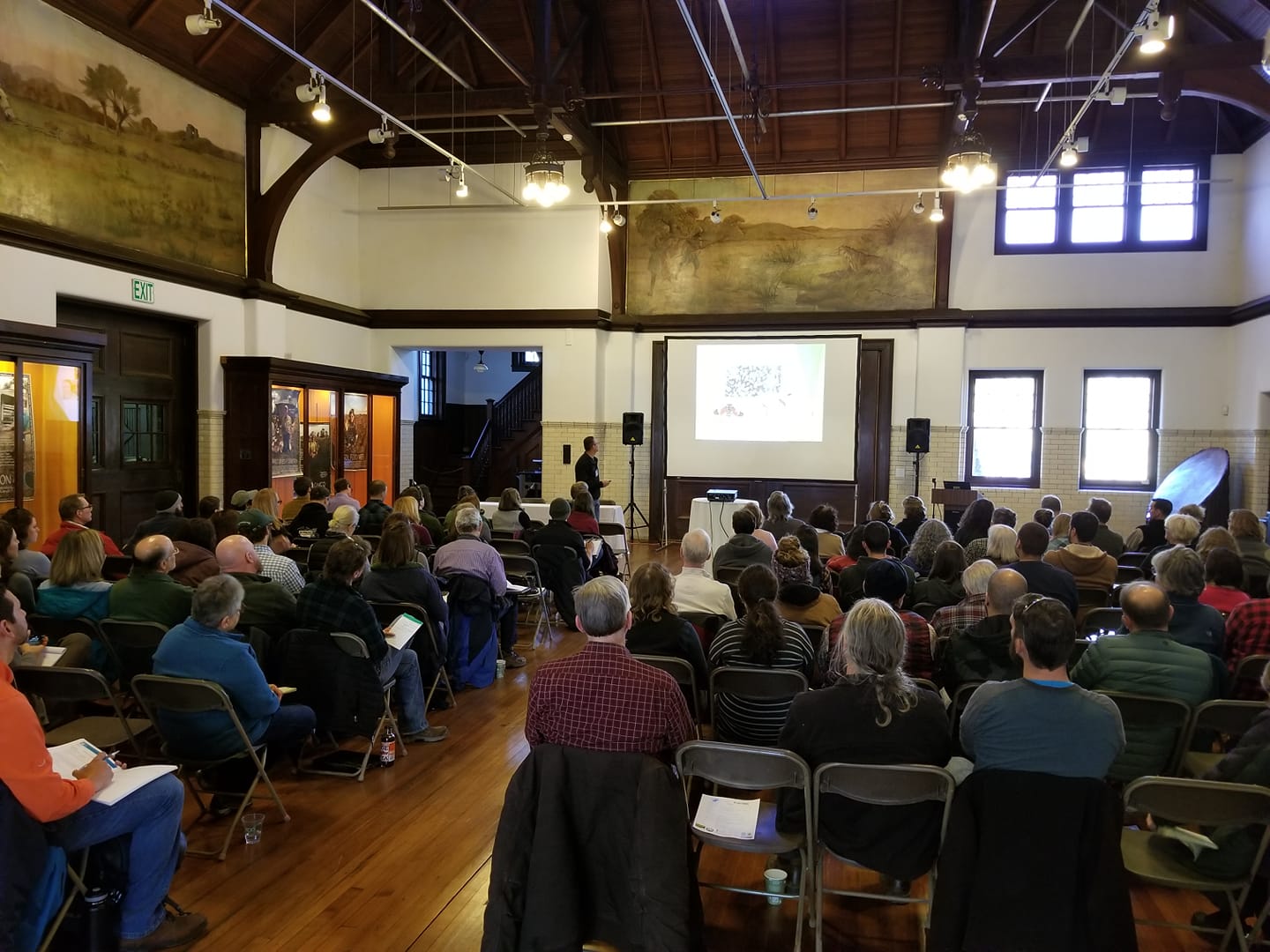Friends of Hopewell Valley Open Space (FoHVOS) hosted the 11th annual New Jersey Invasive Species Strike Team Conference last month, drawing conservationists and eco-professionals from across the state for a day of lectures, fieldwork reports, and demonstrations.
The FoHVOS Invasive Species Strike Team project partnered with conservation groups and ecological firms to lead the annual conference hosted at the historic Duke Farms Coach House.
“It is clear that word has spread about the value of attending the annual strike team conference, where land managers and anyone with an interest in our natural ecology can learn from and network with the most knowledgeable professionals in the field,” stated Ken Klipstein, NJ Water Supply Authority Director, Watershed Protection Programs and Strike Team Steering Committee member. “It is very encouraging to see such a strong interest in learning about invasive species management. Many of the techniques and policies used to manage invasive species are only effective when the public is aware of their existence and importance.”
In addition to speakers from FoHVOS, a number of important environmental agencies and firms presented at this year’s conference including Duke Farms, Princeton Hydro, Mercer County Parks Commission, Trout Scapes River Restorations, Amy S. Greene Consultants, and Weeds, Inc. Attended by around 150 conservationists, the conference encompassed insights from both academic research and field experience, and featured practical demonstrations by land stewards in addition to formal presentations.
A recurring theme throughout the conference was freshwater ecology, including exciting initiatives such as rehabilitation of Trenton’s tidal freshwater marshes, rivers in Warren County, and reclaimed wetlands formerly drained and cultivated for agricultural use. These diverse projects all underscored the connection between eradicating invasive species and restoring stability to wetland habitats and water sources in New Jersey.
Presenters highlighted the impact of invasive species, distilled observations from the field, and revealed their challenges and triumphs. Strike Team Director and featured speaker Michael Van Clef, Ph. D. shared the dramatic success of targeting the aquatic invasive hydrilla in the Delaware Raritan River Basin performed by the New Jersey Water Supply Authority and SOLitude Lake Management.
The Strike Team Conference can be summed up as a touchstone for those involved in conservation efforts in New Jersey. “We enjoyed a great conference featuring exceptionally heartening and informative examples of how degraded lands dominated by invasive species can be restored and turned into fantastic native habitats,” said Dr. Van Clef. “An incredible lineup of experts provided proof that there is always hope that we can now collectively fix what we collectively broke in the past.”
Biostar Associates, Inc., Grace and Harrigan, Bash Contracting, and New Jersey Deer Control, LLC helped round out the day with insights and sponsorships.The conference ended on a high note, looking forward to the spring season of flora and fauna activity, and gearing up for the next public Strike Team Conference, which will be held at Great Swamp National Wildlife Refuge on June 2, 2019.
About the Friends of Hopewell Valley Open Space (FoHVOS): FoHVOS is an accredited nonprofit land trust dedicated to conserving the Valley’s character by collaborating with the community to preserve land, protect natural resources, and inspire a new generation of conservation.Since our inception, we have preserved over 7,500 acres of land and inspired thousands of partners and volunteers. To learn more about FoHVOS, call 609-730-1560 or visit www.fohvos.org.




